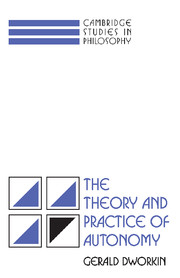5 - Is more choice better than less?
Published online by Cambridge University Press: 05 June 2012
Summary
One's own free unfettered choice, one's own caprice – however wild it may be … What man wants is simply independent choice, whatever that independence may cost and wherever it may lead.
Dostoyevsky, The Brothers KaramazovIn possibility everything is possible. Hence in possibility one can go astray in all possible ways.
Kierkegaard, The Sickness unto DeathIn recent years the use of ways of thinking practiced by economists has provided the theoretical apparatus for attempting to clarify and resolve normative problems in a number of different areas of social policy. Among the areas in which fruitful work has been done are tort theory, voting behavior, constitutional choice, criminal justice, and the theory of property rights. At the same time, of course, economists have applied the tools of welfare economics to problems of allocation of resources in areas such as education, health, consumer choice, insurance, and natural resources. In all these areas – both traditional and new – there are two kinds of tasks at issue. One is the descriptive one of trying to explain various phenomena – why rules of liability are the way they are, or why they change over time, why a system of private property arose, why individuals make certain choices in the marketplace. The other task is to provide assistance in answering various normative questions – should manufacturers of various products be held strictly liable for accidents caused by defects?
Information
- Type
- Chapter
- Information
- The Theory and Practice of Autonomy , pp. 62 - 82Publisher: Cambridge University PressPrint publication year: 1988
Accessibility standard: Unknown
Why this information is here
This section outlines the accessibility features of this content - including support for screen readers, full keyboard navigation and high-contrast display options. This may not be relevant for you.Accessibility Information
- 2
- Cited by
